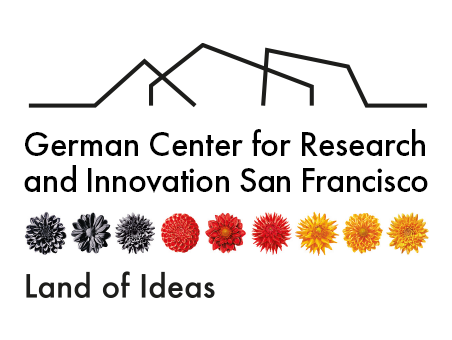CITRIS Health Innovation Intensive 2024
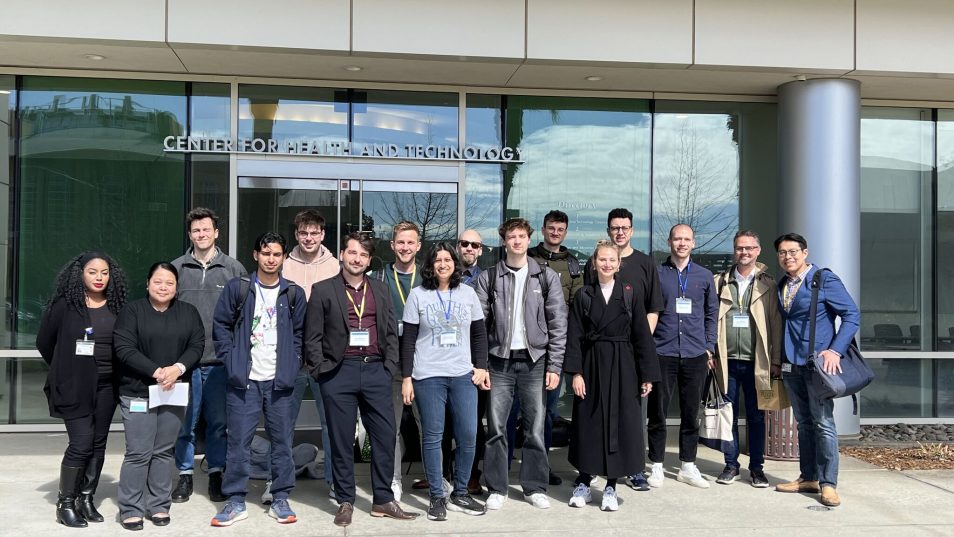
Our inaugural cohort of eight German participants attended the CITRIS and the Banatao Institute‘s Health Innovation Intensive in the Bay Area to learn all about cutting-edge health, tech and innovation. From Monday, March 4 to Friday, March 8, they visited the University of California, Berkeley, University of California, Santa Cruz, University of California, Merced, and University of California, Davis to take part in discussions and panels on topics ranging from assistive tech, nutrition, AI, robotics, and community health.
We were delighted to select Aurel Hampl, Romina Frenzel, Mostafa Elgayar. Johann Lieberwirth, Maximilian Purk, Stefan Krautschneider, Tobias Röddiger, and Vlad Mardare to join the program. Their professional backgrounds are diverse and range from the natural sciences and engineering to medicine and business. The institutions that they represent include the Hasso-Platner Institute in Berlin, the University of Cologne, Karlsruhe Institute of Technology, and Jade University of Applied Science in Oldenburg.
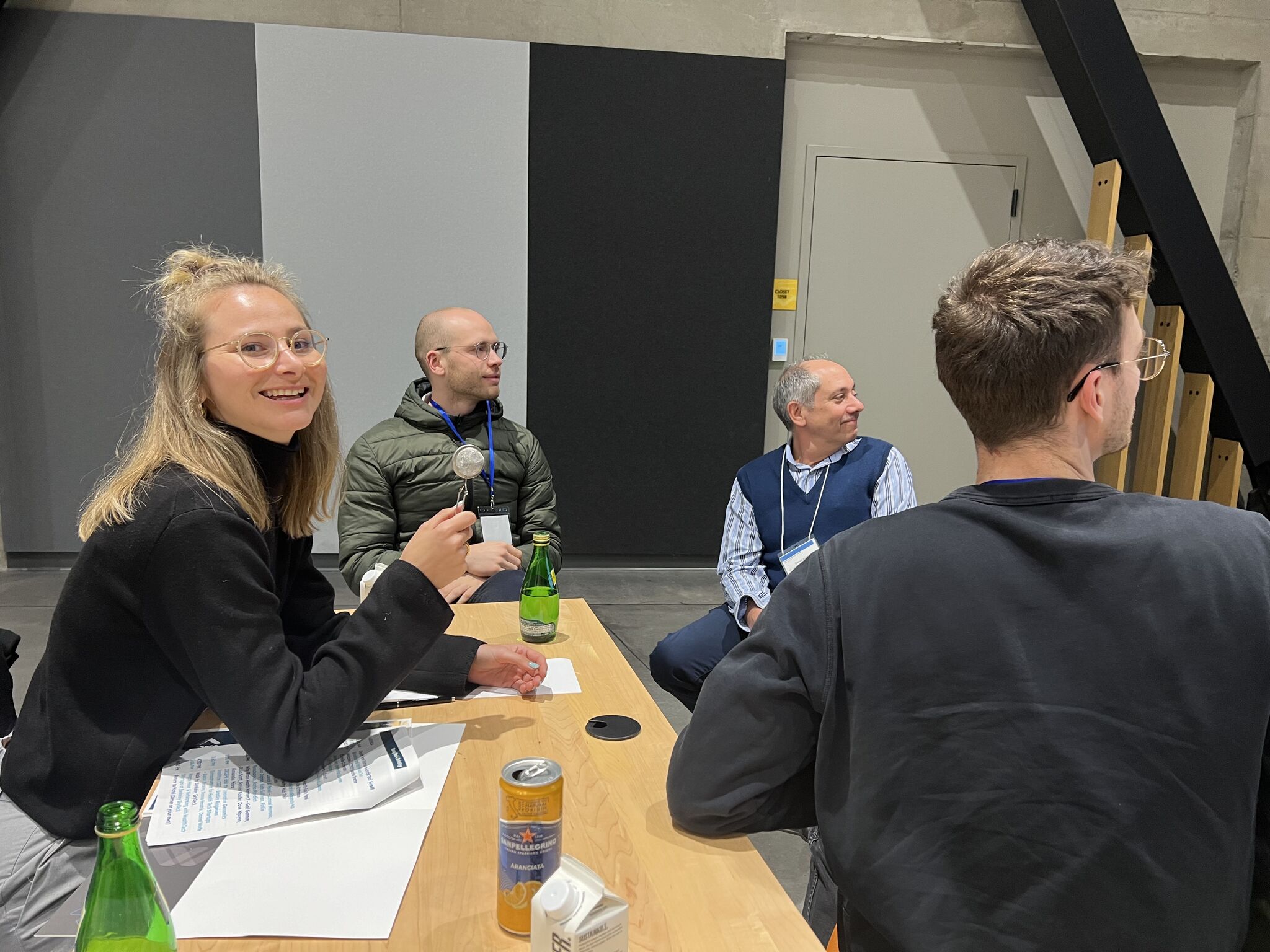 The five-day program included a dive deep into a signature CITRIS research area through immersive visits to all four CITRIS campuses, conversations with top faculty, interactive experiences with advanced technology, and networking opportunities with a cohort from different countries. Participants also had the chance to refine their pitching and presentation skills at the Skydeck, UC Berkeley’s startup accelerator.
The five-day program included a dive deep into a signature CITRIS research area through immersive visits to all four CITRIS campuses, conversations with top faculty, interactive experiences with advanced technology, and networking opportunities with a cohort from different countries. Participants also had the chance to refine their pitching and presentation skills at the Skydeck, UC Berkeley’s startup accelerator.
The week was undoubtedly packed for our participants. On the first day, the cohort was welcomed to the CITRIS Health with David Lindeman and Gale Berkowitz, followed by Irene Chen and Camille Crittenden on AI and Health, and Susan Jenkins at Bakar BioEnginuity Hub. To give them a taste into alternative foods, they had a lunch panel featuring alternative meat companies started by U.C. alumni including Black Sheep, Fulfilled Foods, Impact Food, and Sundial foods.
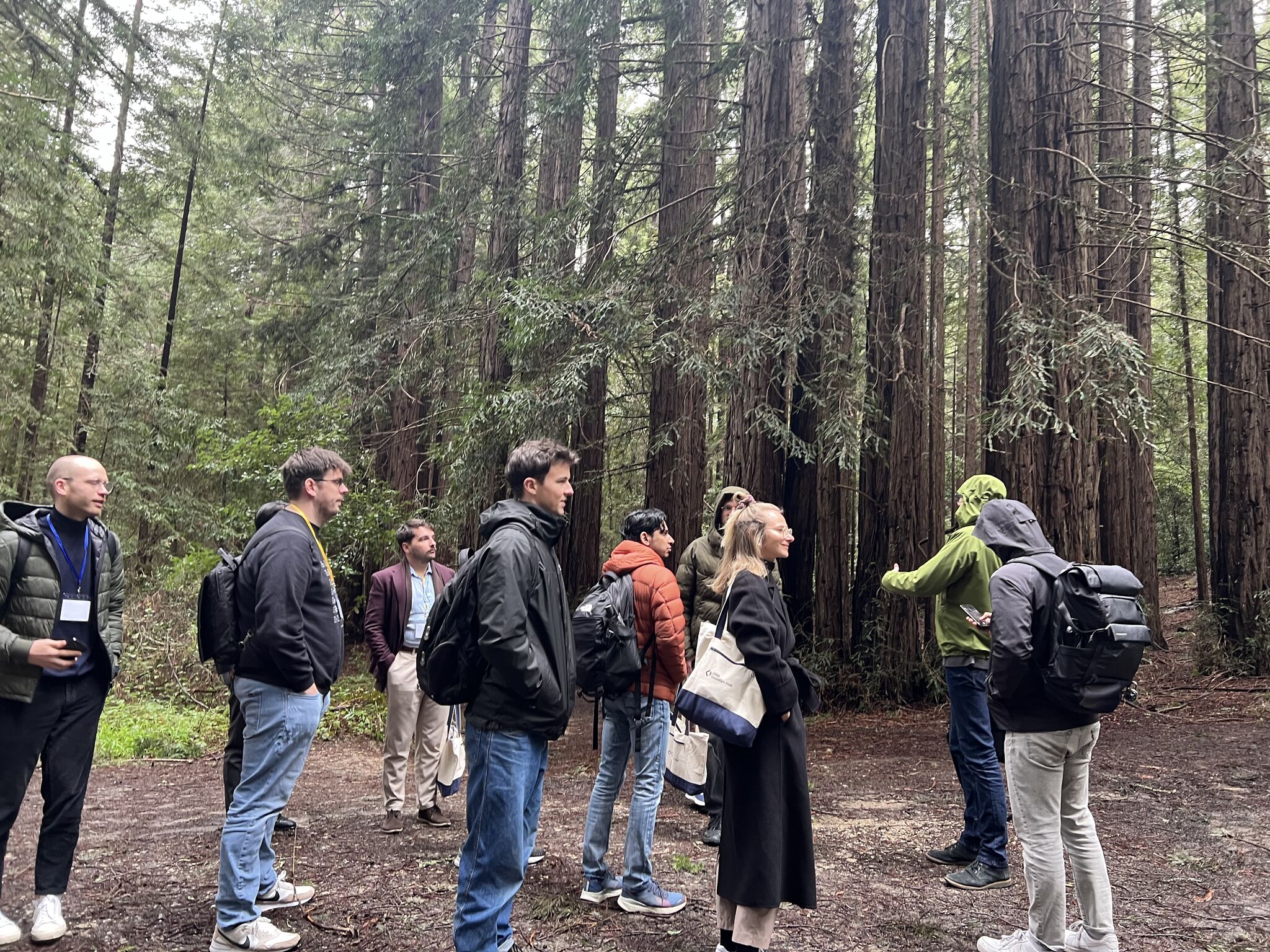 On Tuesday, the group traveled to UC Santa Cruz, where they heard from experts on wound care to imaging to assistive tech for people with visual impairments. On Wednesday, the cohort traveled to the University of California, Merced. During the bus ride, participants benefited from startup mentoring with Walt Cecka, Jon Baer, Anne Cocquyt, and James Robinson. These mentors were generous and insightful and have deep health tech expertise and a track record of successfully coaching many startups.
On Tuesday, the group traveled to UC Santa Cruz, where they heard from experts on wound care to imaging to assistive tech for people with visual impairments. On Wednesday, the cohort traveled to the University of California, Merced. During the bus ride, participants benefited from startup mentoring with Walt Cecka, Jon Baer, Anne Cocquyt, and James Robinson. These mentors were generous and insightful and have deep health tech expertise and a track record of successfully coaching many startups.
The cohort learned about the Central Valley of California’s important role in food production and challenges and gaps in health care in the valley, especially for those engaged in farm work in remote areas. Afterwards, they listened to Asa Bradman and Rosa D. Manzo address health research and innovation for agricultural communities and vulnerable populations. Switching to population level health issues, the cohort explored emerging technology for human health and water systems. After a lunch break, they explored drone applications in health – from last mile delivery to promoting a safer workforce. The day concluded with a hands-on drone obstacle course and a photo from a drone.
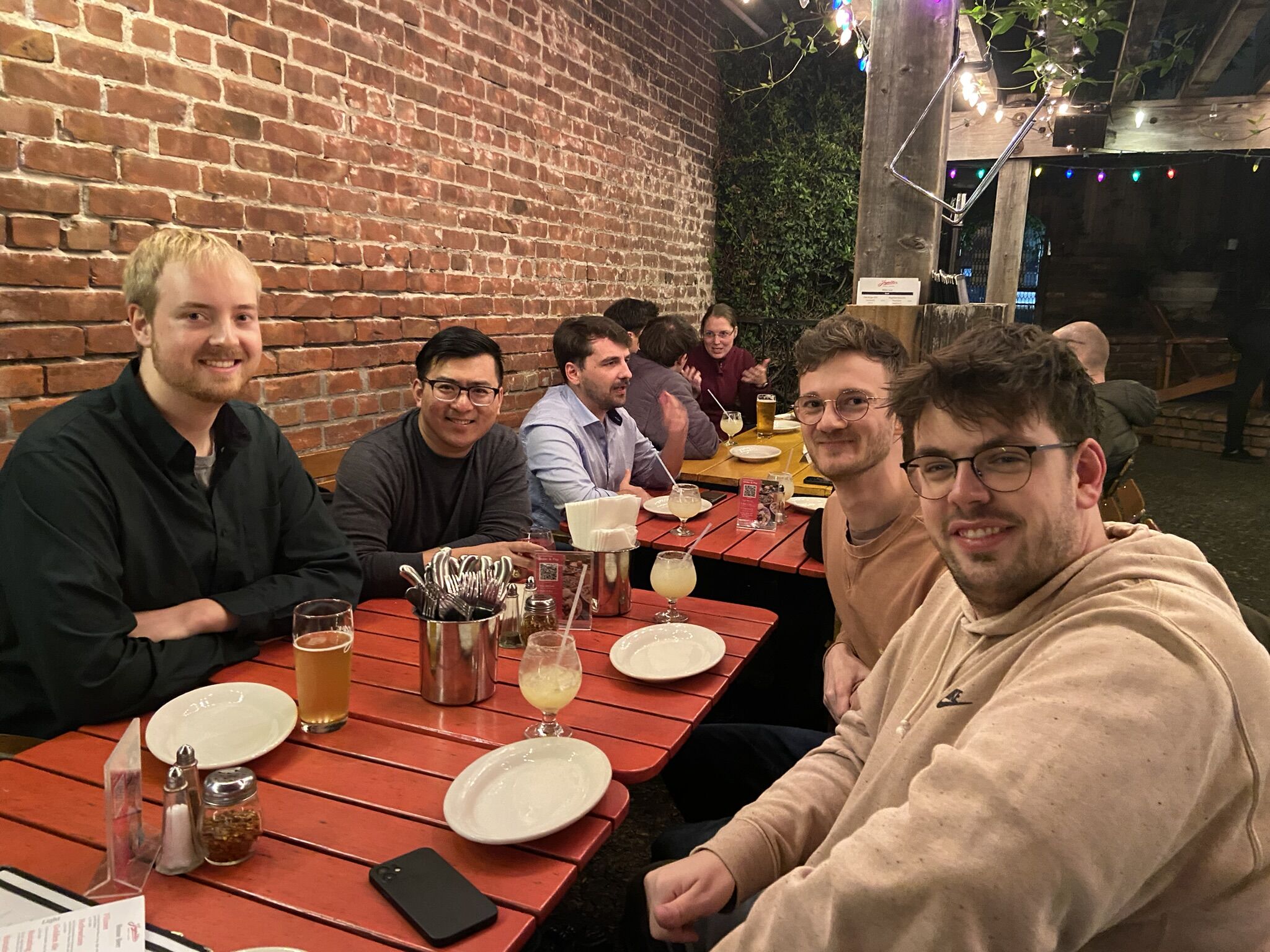 Following a packed day of activities, the DWIH also held an evening networking and meet-and-greet with our participants at Jupiter Restaurant in Berkeley. We brought in German researchers from the GAIN Network living in the Bay Area to meet our cohort and explain how they stay connected to the German research and innovation ecosystem.
Following a packed day of activities, the DWIH also held an evening networking and meet-and-greet with our participants at Jupiter Restaurant in Berkeley. We brought in German researchers from the GAIN Network living in the Bay Area to meet our cohort and explain how they stay connected to the German research and innovation ecosystem.
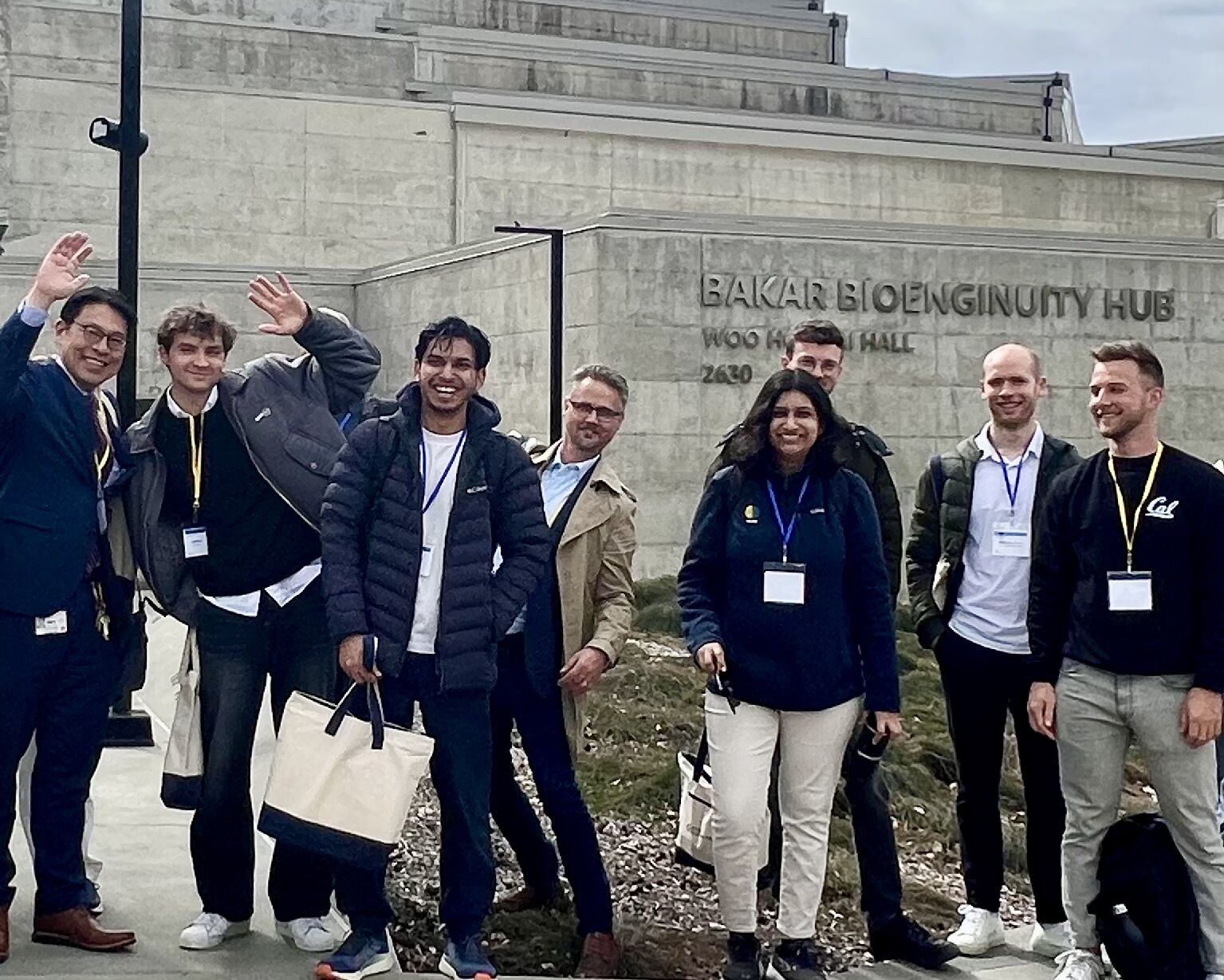 On Thursday, the cohort went to UC Davis, where they learned about the Corsi–Rosenthal Box design for a do-it-yourself air purifier that can be built comparatively inexpensively. During the Air Quality & Health Panel, Michele Barbato, Richard Corsi, and Angela Haczku talked about the harms of inhaling fine particulate matter and the challenges of equitably ensuring better indoor and outdoor air quality for human health.
On Thursday, the cohort went to UC Davis, where they learned about the Corsi–Rosenthal Box design for a do-it-yourself air purifier that can be built comparatively inexpensively. During the Air Quality & Health Panel, Michele Barbato, Richard Corsi, and Angela Haczku talked about the harms of inhaling fine particulate matter and the challenges of equitably ensuring better indoor and outdoor air quality for human health.
Overall, our participants left with a positive impression of the program and inspiration as they continue to structure their entrepreneurial ideas. According to one participant: “[The program] really helped me a lot structuring and planning an idea through to a possible business plan and startup as a researcher who is not trained in entrepreneurship so far.” Another wrote: “If I look back, my biggest takeaway from this day was understanding CITRIS as well as the whole innovation ecosystem.” Looking to the future, the hope of this program is that the lessons instilled, and connections made foster health innovations that prioritize social equity and access, ensuring the benefits of technology reach all corners of society. Moreover, the program aimed to help participants cultivate an entrepreneurial mindset as they experience first-hand the unique innovative ecosystem of the greater Bay Area.
We are appreciative of the Hasso Plattner Institute, University of Cologne and Karlsruhe Institute of Technology for helping to promote this program and for supporting the travel costs of their participants in the program. We also credit Jill Finlayson for the detailed synopsis of the program in this article and for management of the intensive. DWIH San Francisco will sponsor a similar program in the autumn with CITRIS on the topic of climate. Applications will open in the summer.
Photo Credits: Jill Finlayson, CITRIS at University of California, Mostafa Elgayer, Stefan Krautschneider.
